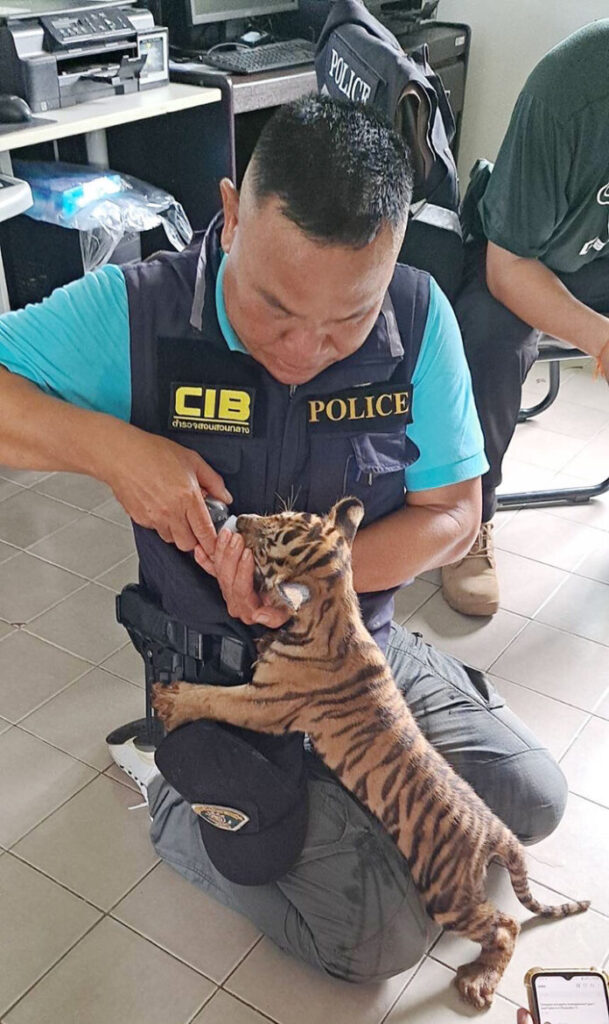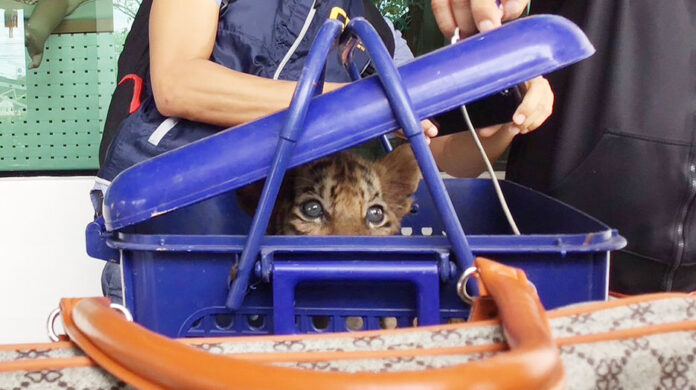In a significant crackdown on wildlife trafficking, Pol. Maj. Gen. Watcharin Poosit, the Commander of the Natural Resources and Environmental Crime Suppression Division (NED), issued a directive on June 4th. This directive led to the apprehension of Mr. Ho The Luc, a 34-year-old Vietnamese national, and Ms. Sawitree, aged 42, in the Wisit sub-district of Mueang district, Bueng Kan province. The arrests were accompanied by the confiscation of critical evidence, notably a one-month-old tiger cub, a plastic basket, and two mobile phones.

Prior to this operation, the Wildlife Justice Commission (WJC) had alerted officials about Mr. Ho’s involvement in international wildlife trafficking across Laos, Vietnam, and Myanmar. Allegedly, Mr. Ho had been residing in Laos, orchestrating the illicit trade, including the sale of a tiger cub within a clandestine group. Subsequently, authorities orchestrated a sting operation, arranging to procure the tiger cub in Bueng Kan province.
During the operation, officers intercepted Mr. Ho and Ms. Sawitree as they were in the process of handing over the one-month-old female tiger to an undercover officer. Following the arrest, Mr. Ho confessed to orchestrating the sale, claiming to have acquired the tiger cub from a breeding farm in Vietnam. Conversely, Ms. Sawitree denied involvement in wildlife trafficking, asserting her unawareness of the tiger cub’s presence within the crate she was carrying. She claimed the crate belonged to an acquaintance from Laos, named Ton, who had requested its delivery to a customer.

Further investigation revealed that despite not knowing each other, both individuals stood to gain from the tiger cub’s sale, priced at 300,000 baht or approximately 8,200 USD. Subsequently, they were handed over to NED investigators and charged with “joint possession of protected wildlife without authorization.” Tigers, classified as a protected species under the Wildlife Preservation and Protection Act of 2019 and listed under Appendix I of the CITES Controlled Species List, face strict prohibitions on trade due to their endangered status. Offenders risk a maximum penalty of 10 years imprisonment, a fine of up to 1 million baht, or both, underscoring the severity of wildlife trafficking offenses.
